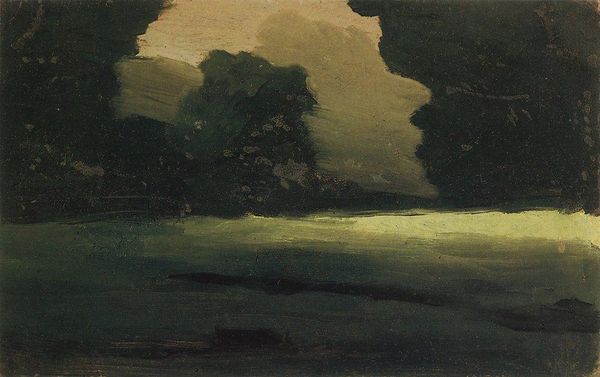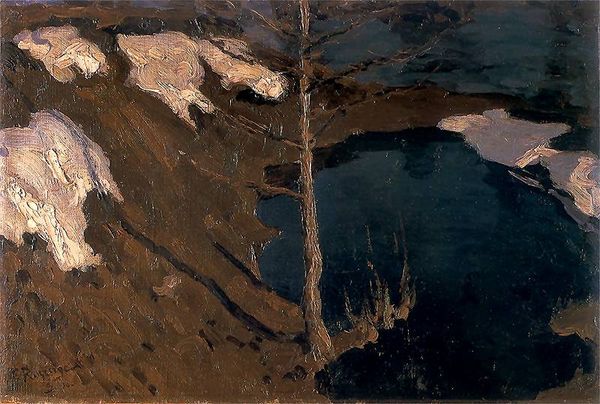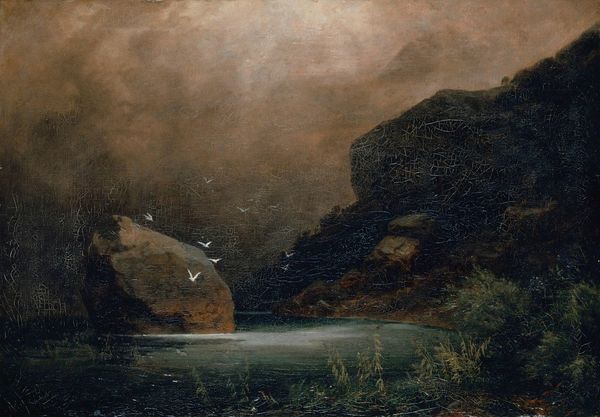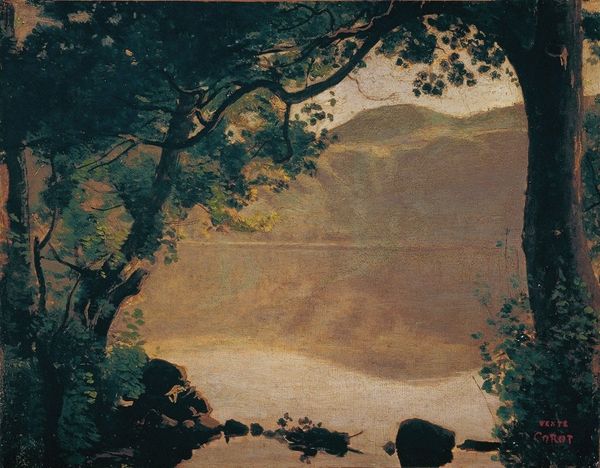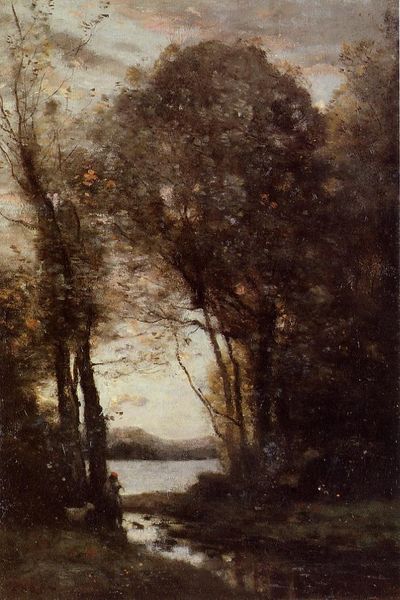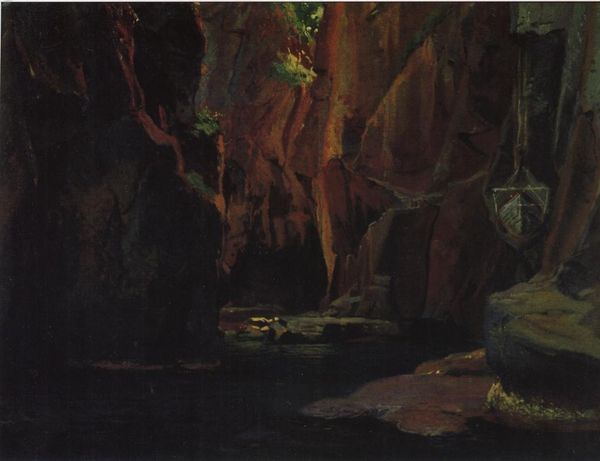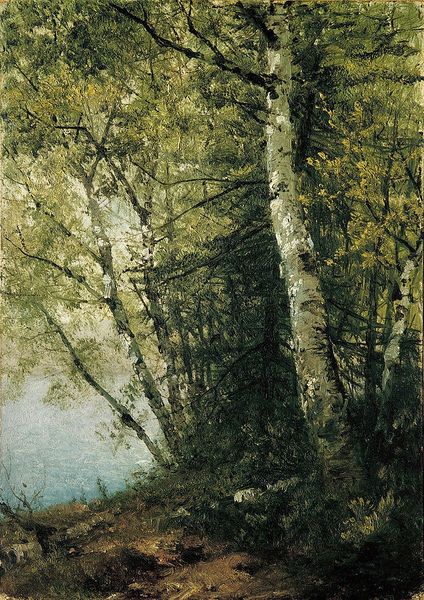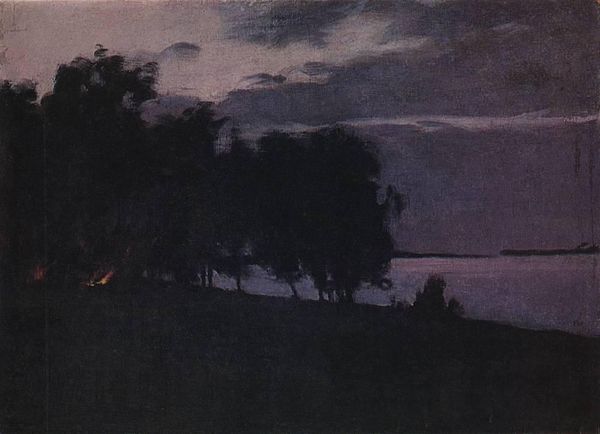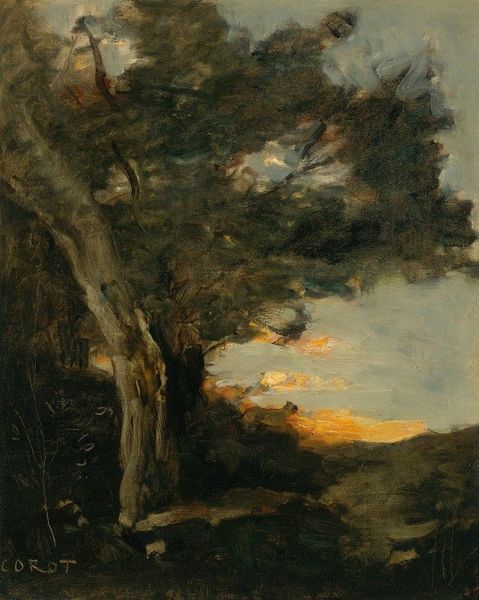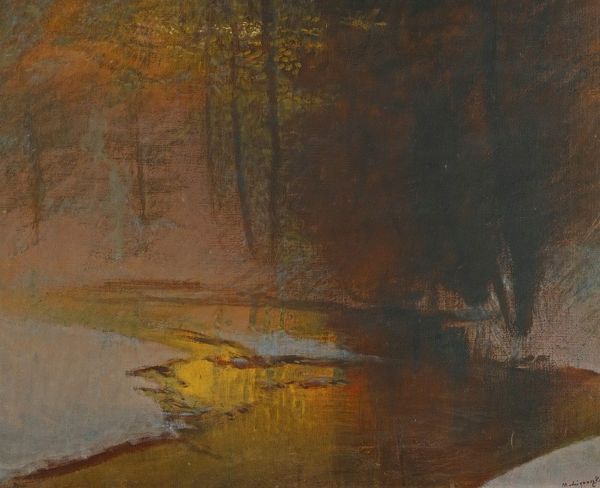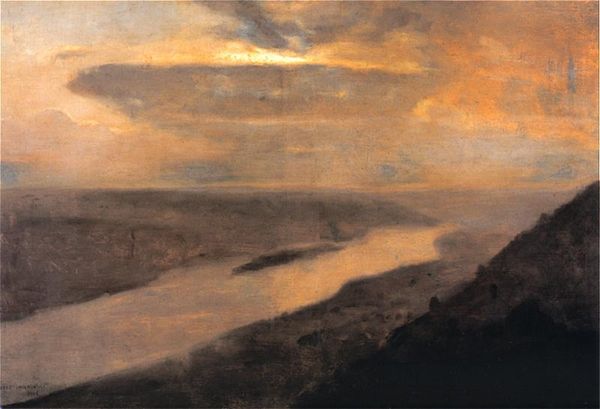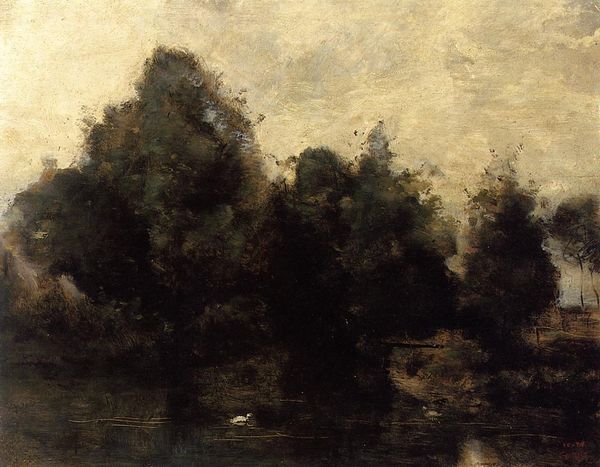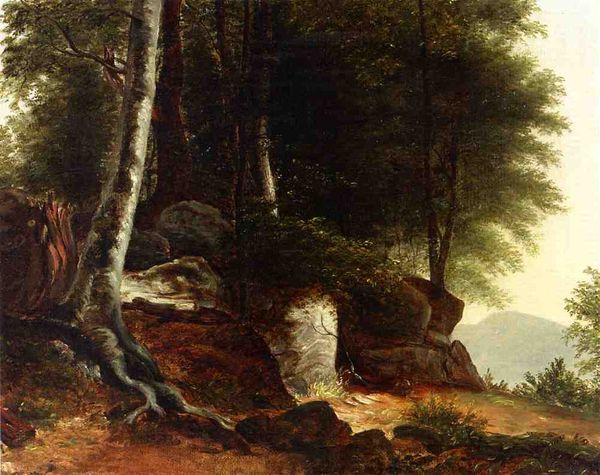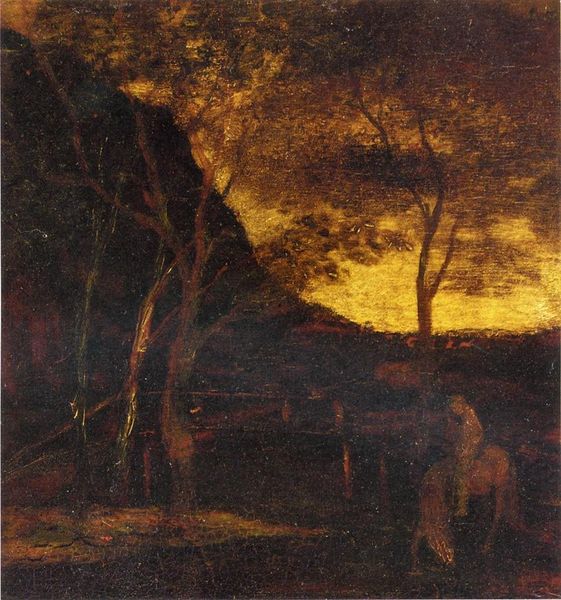
Copyright: Public domain
Curator: Standing here, looking at this landscape, I'm struck by how deeply quiet it feels. Melancholy, maybe? Editor: Perhaps. This is "Wieczór, Wilejka," or "Evening, Vileika," an oil on canvas created around 1900 by Ferdynand Ruszczyc. For me, that melancholy feels steeped in a very specific historical moment. Curator: Tell me more. Editor: Well, Ruszczyc lived in a region marked by shifting national identities and political upheaval. This landscape, so still and brooding, could be seen as a reflection of that, don’t you think? It reminds me of a visual poem. Curator: I get that. It's as if he's trying to capture something that’s slipping away, maybe that connection to place amidst all the social flux. I see the heavy darkness of the trees and that intensely glowing river… it’s so dramatic. Almost operatic! Editor: Precisely! Think about the power dynamics inherent in landscape painting—who gets to represent the land, and whose stories are centered? Ruszczyc's painting, through its stark contrasts and almost theatrical composition, asks us to consider these questions of representation. The looming darkness of the landscape versus the vibrant water and orange sky creates such tension! Curator: Right. It's as though he's pitting beauty against something unknowable. Perhaps a larger social change? Editor: Exactly. And let's not forget the role of memory here. This painting becomes a stage for contemplating the past, the present, and the anxieties about the future. This piece shows us how landscapes don't just mirror the earth but society itself. Curator: That interplay you highlighted truly shifted my viewing of this artwork from merely surface beauty to an emotionally fueled discussion about cultural turbulence! Editor: Absolutely, viewing the painting with you also enriched my insight. I appreciate how Ruszczyc subtly shows our place in landscape is as witnesses or, indeed, as players.
Comments
No comments
Be the first to comment and join the conversation on the ultimate creative platform.
